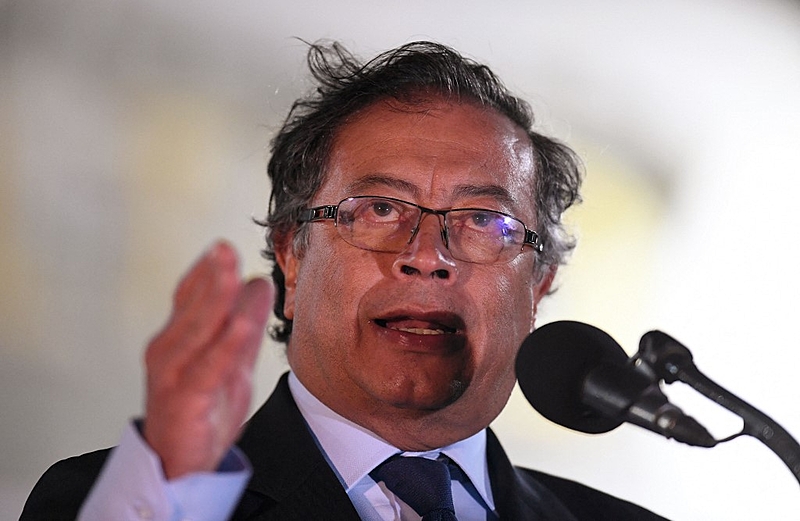By Sabrina Martin
Colombian President Gustavo Petro decided to release dozens of criminals so that they “spend Christmas with their families.”
This is a group of detainees who committed crimes in the violent national strike last year and who will now be released as part of an electoral promise that Petro made during his campaign. The decision has generated countless criticisms because the Colombian Justice condemned them as guilty with compelling evidence.
But Petro not only seeks to free them, but also hopes to designate them as “peace managers.”

For the Colombian president, it is not about violent criminals but about “youth leaders” who expressed themselves; However, it was shown that they were activists who committed various crimes during the opposition demonstrations that should have been peaceful and that caused destruction, fires and even deaths.
“This government does not side with youth, social and activist leaders who simply expressed themselves, keeping them imprisoned in Colombian jails, when they have the right to spend their Christmas with their families,” said Petro.
The news raised a wave of criticism not only from the opposition but also from some allies of the ruling party.
“There were more than three hundred captures. There was a prior intelligence and prosecution process, with all the procedures of the Prosecutor’s Office and, of course, a judge who issued the arrest warrants. The other arrests were in flagrante,” said Diego Molano, Duque’s former defense minister, in a statement.
“It cannot violate the independence of powers and the law. He cannot forget that he is president and not a dictator,” pointed out the senator of the Democratic Center, Miguel Uribe.
Among the imprisoned protesters who would be released are the members of the so-called Primera Línea (First Line), who always had the support of the Historical Pact and who considered them as “social-political prisoners.”
Among the detainees is Andrés Pastor, a Colombian who led the brutal attack on a carpenter they mistook for a policeman. The aggression was such that they beat him, stabbed him, and threw gasoline on him to set his body on fire.
“Releasing criminals is the first cause, perhaps the one that matters most to this government,” said Uribe senator Paloma Valencia.
Likewise, the former presidential candidate, Federico Gutiérrez, questioned the Petro decision and affirmed that the Colombian government is on the side of the criminals.
“It is clear that this government is on the side of those who commit crimes and not of law-abiding citizens. President Petro will appoint as ‘peace managers’ members of the Primera Línea who are in jail today (not for protesting, but for generating terror). He will give them freedom,” he said on Twitter.
Magistrates from all over the country began to demonstrate against Gustavo Petro’s decision and, above all, denied the statement that they would be “illegal detainees.”
Hugo Alexander Ríos, president of the Bogotá Court, assured that it is wrong to point out that those captured and prosecuted were victims of persecution. According to the magistrate, they are deprived of their liberty as a result of a judicial measure based on the facts.
“All the decisions of the judges have been made on the basis of a legal system, they are legitimate decisions. Those who have been deprived of their liberty are there by order of a competent authority issued in accordance with the procedures established in the Constitution and the law, so there is no illegal detention,” he told Semana.
THEY ARE NOT PROTESTERS, THEY ARE CRIMINAL GROUPS
The Primera Línea is not just any protest group, but a criminal organization that has alliances with large criminal groups in the country.
Although this organization became known during the strike on April 28 as a “spontaneous and peaceful group” of dissatisfied young people, the investigations concluded that it is an organization that prepared to violently destabilize the government of the then president, Iván Duque.
“Since November 2019, the members of the ‘front line’ have transitioned to the use of terrorism as the mechanism to cause systematic damage and collateral damage,” says an intelligence report to which Semana magazine had access.
The group used combat methods, explosives, and even unconventional weapons to terrorize and destroy public and private property. In addition, it was discovered that they had ties to the dissidents of the FARC, the Segunda Marquetalia, the ELN and other criminal gangs.
With information from La Gaceta

